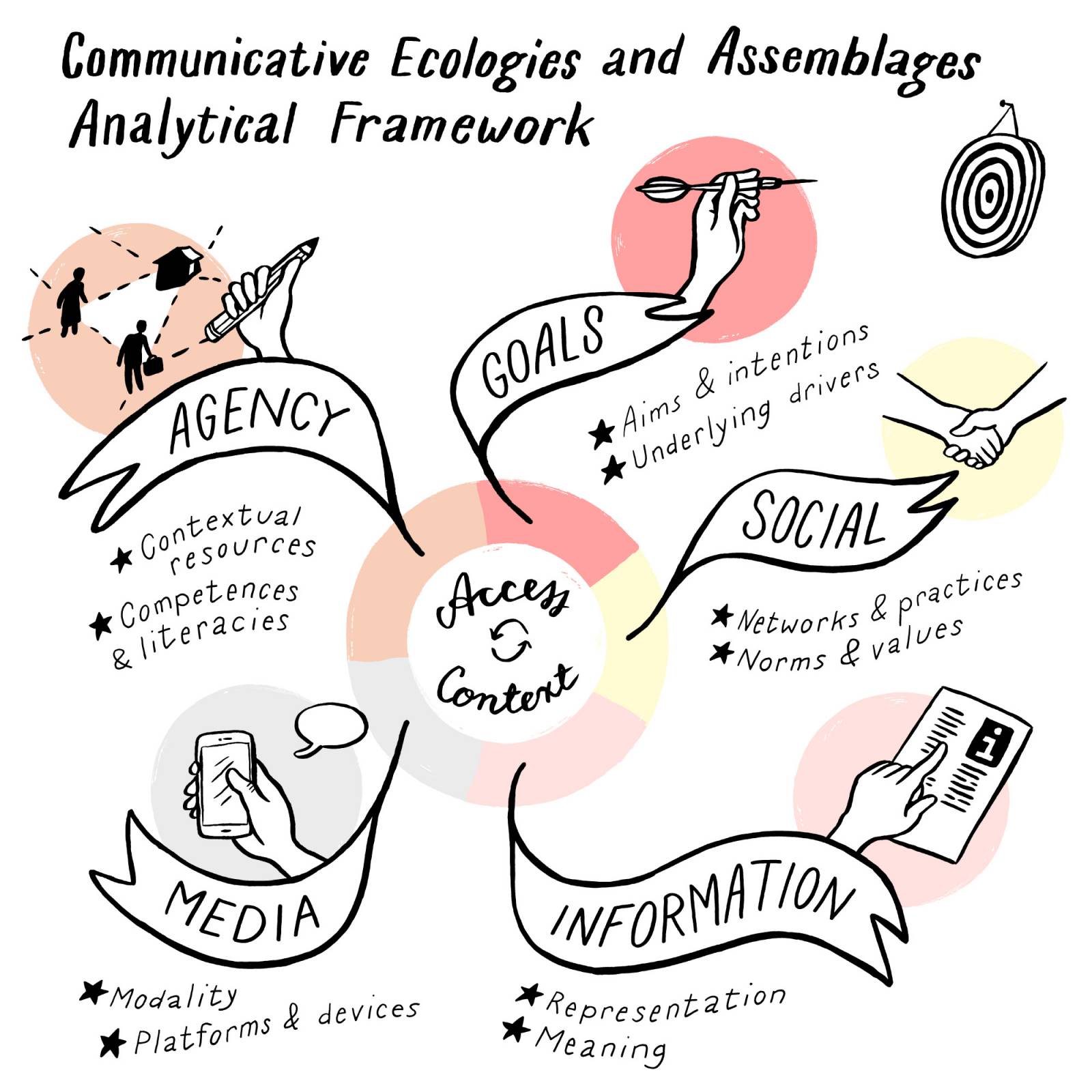In this chapter we first present the CEA framework and describe how it combines two approaches to understanding communication – communicative ecologies and communicative assemblages. We show how the CEA framework was developed as an analytical tool to understand and compare the information and communication practices of AE providers and AE learners. We then detail the research design to illustrate the size and scope of the study and data collected. We share findings from two of our 20 countries to give a sense of the level of detail covered as well as to demonstrate the need for contextualizing the findings. Finally, we discuss the key findings and conclude by considering how the CEA framework might be used to help AE to include young adults at risk of social exclusion in active participatory citizenship.
Tacchi, J., Toiviainen, H., Kersh, N. (2022). The Role that Adult Education can Play in Supporting Young Adults with Vulnerabilities. In: Evans, K., Lee, W.O., Markowitsch, J., Zukas, M. (eds) Third International Handbook of Lifelong Learning. Springer International Handbooks of Education. Springer, Cham. https://doi.org/10.1007/978-3-030-67930-9_33-1


